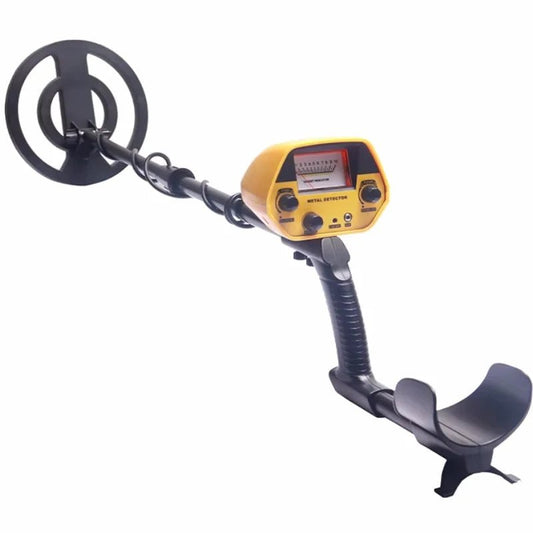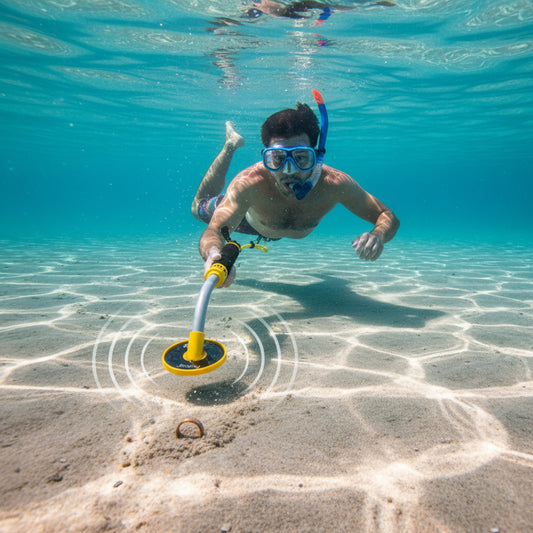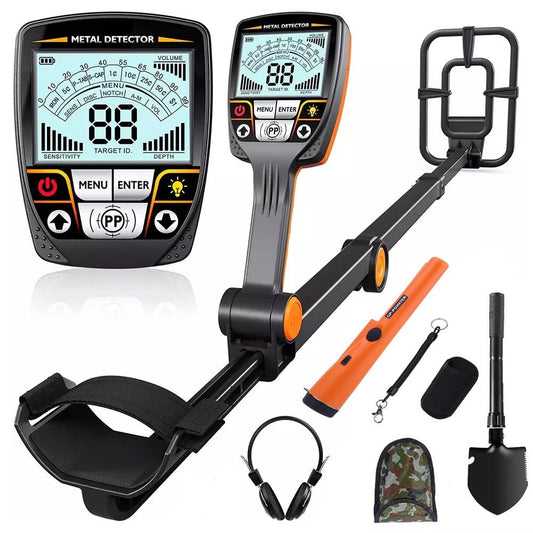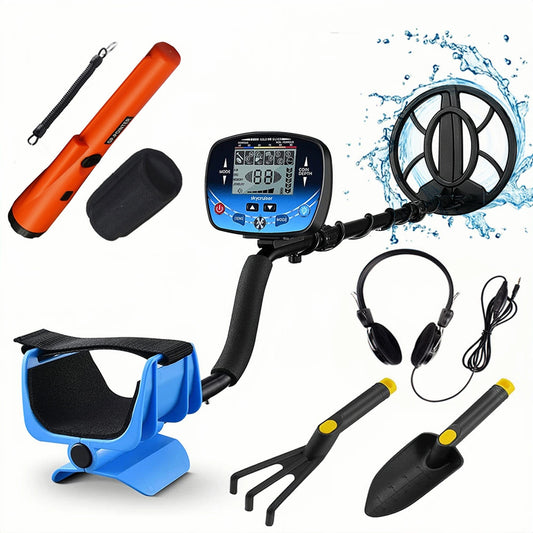
Metal Detecting in Malta: Beaches, Knights’ Relics, and WWII Finds
Share
Malta’s dramatic Mediterranean coastline, storied history of the Knights of St. John, and pivotal role in World War II make it a captivating destination for history lovers and treasure hunters.
But before you bring your detector, it’s crucial to understand Malta’s strict heritage laws and what’s actually allowed.
Is Metal Detecting Legal in Malta?

Metal detecting in Malta is highly regulated and generally prohibited for individuals. Importing metal detectors for personal use is banned, and you cannot legally possess a detector unless it was inherited or officially authorized. Any search or excavation for items over 50 years old requires a government permit from the Superintendence of Cultural Heritage.
Key legal points:
-
Importing metal detectors for personal use is banned.
-
You cannot possess or use a detector unless inherited or officially authorized.
-
Any excavation or search for objects over 50 years old without a permit is illegal.
-
All archaeological finds belong to the state and must be reported.
-
Even beaches and shallow waters may be protected if above or near archaeological sites.
Some hobbyists report occasional beach detecting, but these activities exist in a legal gray area and risk fines or prosecution. Always check with local authorities before attempting to detect anywhere in Malta.
Beach Detecting in Malta: What’s Allowed?

Malta’s beaches, from Mellieha Bay to St. Peter’s Pool, are beautiful but tightly regulated. Because the entire archipelago is rich in history, even ordinary beaches may be protected.
What you need to know:
-
Most beaches are off-limits for metal detecting unless you have explicit permission from the Superintendence of Cultural Heritage.
-
Some tourists and locals have detected on beaches like Pretty Bay or Golden Bay, but this is not officially permitted and may result in confiscation or fines.
-
Any item found that is over 50 years old must be reported and handed over to authorities.
-
Always avoid protected dunes, nature reserves, and any area with archaeological significance.
If you are determined to try, contact the authorities or the Superintendence for advice. Never detect near historical sites, fortifications, or known WWII areas without a permit.
Knights’ Relics and WWII Finds
Relics of the Knights of St. John
Malta was the headquarters of the Knights Hospitaller from 1530 to 1798, and the islands are dotted with fortresses, churches, and tunnels built by the Knights. While the idea of finding Knights’ relics is exciting, all such items are considered national heritage and are strictly protected by law. Unauthorized searching or removal is illegal and subject to severe penalties.
World War II Artifacts
Malta played a crucial role during WWII, enduring heavy bombing and serving as a base for Allied operations. Relics from this era—such as shell casings, badges, and personal items—occasionally surface on beaches or in gardens, but these too are protected, and any significant find must be reported.
Best Beaches in Malta (for Sightseeing)

While metal detecting is not officially allowed, Malta’s beaches are worth visiting for their beauty and history:
-
Golden Bay: Sandy, family-friendly, and surrounded by cliffs.
-
Ghajn Tuffieha: Known for reddish sand and fewer crowds.
-
Mellieha Bay: Largest sandy beach, popular with families.
-
St. Peter’s Pool: Famous for clear water and cliff diving.
-
Blue Lagoon (Comino): Crystal-clear waters, ideal for swimming and snorkeling.
-
Ir-Ramla (Gozo): Bright golden-reddish sand and a Blue Flag beach.
If you’re interested in Malta’s history, visit the fortresses of Valletta, the underground shelters in Birgu, or the WWII museum for a glimpse of real relics.
Legal and Responsible Detecting: Essential Tips

-
Do not import or buy a metal detector in Malta without checking the law.
-
Never detect on beaches, parks, or private land without explicit permission.
-
Avoid all archaeological sites, fortifications, and protected areas.
-
If you find something old or significant, report it to the Superintendence of Cultural Heritage.
-
Practice good etiquette: fill all holes, remove trash, and respect the environment.
-
If in doubt, join a local history or archaeology group to learn more about Malta’s past.
What Can You Find?
If you have legal permission, you might find:
-
Modern coins, jewelry, and lost items on busy beaches.
-
WWII-era shell casings, buttons, or badges (must be reported).
-
Relics from the Knights of St. John (strictly protected and must be reported).
However, all significant finds are state property and must be handed over.
Conclusion
Malta’s beaches and historic sites are rich in stories and potential treasures, but strict laws mean metal detecting is mostly off-limits for individuals. If you’re passionate about history, enjoy Malta’s heritage through museums, guided tours, and sightseeing. For those determined to detect, always seek legal advice and official permission. Respecting Malta’s cultural legacy ensures its treasures remain protected for future generations.




